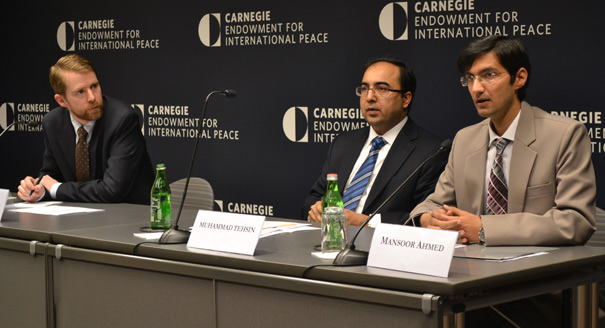Registration
You will receive an email confirming your registration.
Pakistan is variously described as the world’s most dangerous place and the state with the fastest growing nuclear program. But such characterizations obscure the drivers of Pakistan’s approaches to its internal and external security challenges. These drivers include Pakistan’s strategic culture and specific organizational features of its national command authority.
The Carnegie Endowment for International Peace hosted two Pakistani scholars, both currently serving as visiting fellows at the Cooperative Monitoring Center at Sandia National Laboratories, for a discussion of how Pakistan’s strategic culture and organizational behavior impact its approach to counterterrorism and nuclear weapons development. Toby Dalton moderated.
Mansoor Ahmed
Mansoor Ahmed is a lecturer in the Department of Defense and Strategic Studies at Quaid-i-Azam University in Islamabad. Previously, he served in the Pakistan Audit and Accounts Service as a civil servant. He was also a research assistant to Feroz Hassan Khan on the book Eating Grass: The Making of the Pakistani Bomb (Stanford University Press, 2012).
Muhammad Tehsin
Muhammad Tehsin is a tenure-track assistant professor in the Department of Defence and Strategic Studies at Quaid-i-Azam University in Islamabad. His work seeks to explore the interconnectedness of Iranian nuclear research, Afghan-Pakistani stability, and U.S. security.
Toby Dalton
Toby Dalton is the deputy director of the Nuclear Policy Program at the Carnegie Endowment for International Peace. An expert on nonproliferation and nuclear energy, his research focuses on cooperative nuclear security initiatives and the management of nuclear challenges in South Asia and East Asia.
